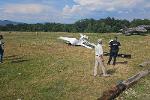The Rompetrol group, owned by businessman Dinu Patriciu, expects trading activities will account for some 3.7 billion dollars (3 billion euros) of the 7.5 billion dollars (6 billion euros) projected in turnover this year.
"This business unit amounted to some 1 billion dollars (0.8 billion euros) in 2006. The main catalyst behind the growth of this business is determined by the number of sales we register. For instance, we will sell 5 million tonnes this year, 3.7 million of which will go to Petromidia refinery. This is the reason why trading activities will grow," says Dan Ionescu, the vice-president for trading of the Rompetrol group.
Approximately 200 people from all 13 countries where Rompetrol is present work in the trading field. The headquarters of the operation is based in Switzerland, where the trading is done under the Vector Energy name.
In Romania, this line of work was introduced last February, following a reorganisation of the entire Rompetrol group structure after the purchase of the French operator, Dyneff.
Trade helps the company identify those mechanisms necessary to keep prices under control between the time of supply and the time of demand, as well as the instruments necessary to minimise the risk of depreciation between supply and demand.
"If I have to buy crude oil to supply the refinery with 300,000 tonnes per month, I must enter a trading system that amounts to at least 600,000 tonnes. I will use 300,000 tonnes for my own system, while the remaining volume will be directed to others. How will I make this? I create a balance between loads and unloads," says Ionescu.
"Trading identifies a company's need and meets it depending on the supply. Moreover, it calculates the risk of market volatility. Any risks of declining prices are offset by hedging, which complements the trading through financial-banking mecha





